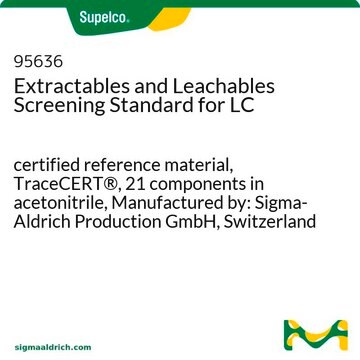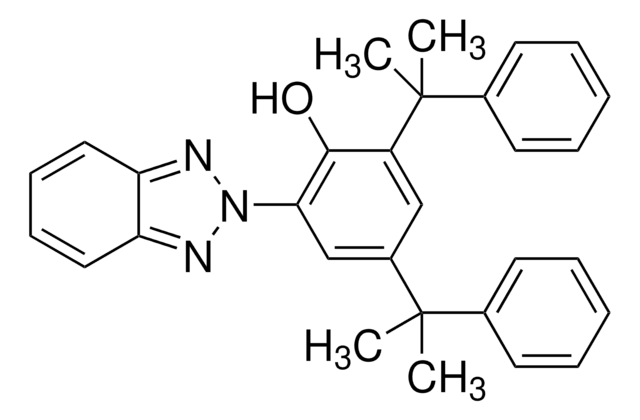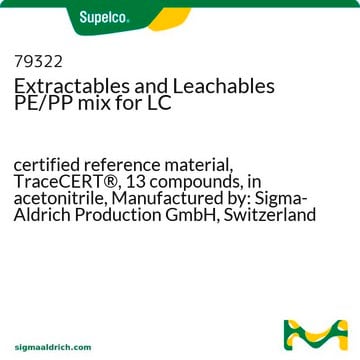86541
Testosterone propionate
tested according to Ph. Eur.
Synonym(s):
Testosteroni propionas, 17β-Hydroxy-4-androsten-3-one 17-propionate, 17β-Propionyloxy-4-androsten-3-one, 4-Androsten-17β-ol-3-one 17-propionate
About This Item
Recommended Products
Agency
USP/NF
tested according to Ph. Eur.
form
solid
drug control
USDEA Schedule IIIN; regulated under CDSA - not available from Sigma-Aldrich Canada
SMILES string
[H][C@@]12CCC3=CC(=O)CC[C@]3(C)[C@@]1([H])CC[C@]4(C)[C@H](CC[C@@]24[H])OC(=O)CC
InChI
1S/C22H32O3/c1-4-20(24)25-19-8-7-17-16-6-5-14-13-15(23)9-11-21(14,2)18(16)10-12-22(17,19)3/h13,16-19H,4-12H2,1-3H3/t16-,17-,18-,19-,21-,22-/m0/s1
InChI key
PDMMFKSKQVNJMI-BLQWBTBKSA-N
Gene Information
human ... AR(367) , CYP17A1(1586)
rat ... Ar(24208)
Looking for similar products? Visit Product Comparison Guide
General description
Application
- to determine the effect of testosterone on the uptake of certain amino acids, such as isoleucine and α-(methylamino)isobutyric acid
- in a study to understand the effects of testosterone on brain aromatase activity in neonatal quail brain
- for testosterone treatment of Celf1 knockout mice in a study to investigate the upregulation of aromatase activity in association with hypogonadism
- to investigate the ontogeny of aromatase-expressing neurons in Japanese quail brain
- to study the effects of in vivo administration of testosterone propionate on fluid reabsorption in the efferent ducts of rat.
Biochem/physiol Actions
Other Notes
Signal Word
Danger
Hazard Statements
Precautionary Statements
Hazard Classifications
Acute Tox. 4 Oral - Aquatic Acute 1 - Carc. 2 - Repr. 1A
Storage Class Code
6.1C - Combustible acute toxic Cat.3 / toxic compounds or compounds which causing chronic effects
WGK
WGK 3
Personal Protective Equipment
Choose from one of the most recent versions:
Already Own This Product?
Find documentation for the products that you have recently purchased in the Document Library.
Customers Also Viewed
Our team of scientists has experience in all areas of research including Life Science, Material Science, Chemical Synthesis, Chromatography, Analytical and many others.
Contact Technical Service












